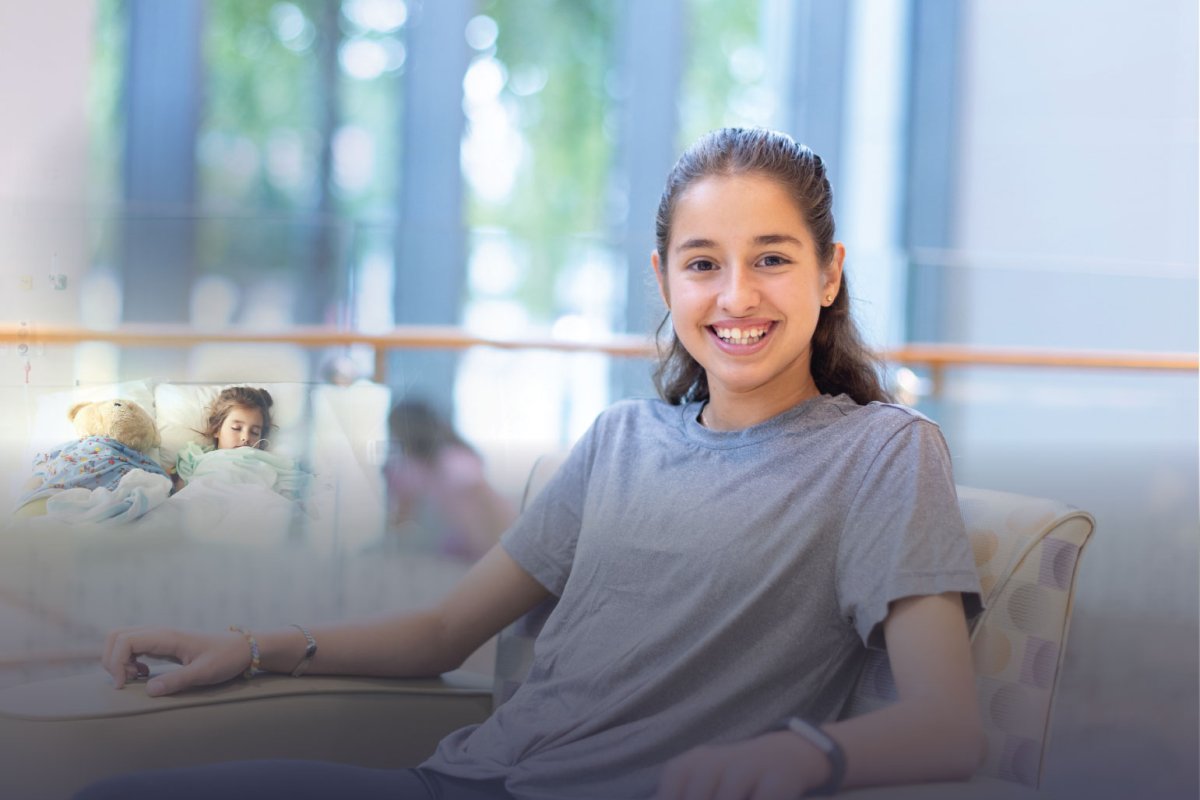Living Proof
“IT’S HER STORY.” These are the words Marisa Goodwin uses to explain why Marisa’s 14-year-old daughter, Olivia, has known about her health condition since she was a small child. The story began when the community hospital where Marisa was scheduled to deliver her baby discovered a heart abnormality. She recalled they told her, “We don’t have a pediatric cardiologist. We’re not equipped to take you.”
Prepared to travel to any leading hospital nationwide, Marisa discovered the best option was in her backyard at UVA Health Children’s. “I had no idea that UVA was one of the leaders in the country in pediatrics and pediatric cardiology,” she said.
During her first appointment at UVA Health Children’s, a doctor told Marisa, “Don’t have lunch; you’re having this baby today.”
Diagnosed with a condition called complete heart block, Olivia had her first surgery when she was just three days old. She had another five years later and a third three years after that. Before her ninth birthday, Olivia had already had nearly half the number of surgeries the average American has in a lifetime.
“Early on, she had this strength,” Marisa recalled. “She made the decision to live at three days old, and to this day, if she makes a decision, she’s going to see it through.”
Today, Olivia is an eighth grader at Charlottesville Catholic School. She is the president of her school’s chapter of the National Junior Honor Society, a member of the track and cross-country teams, and a competitive swimmer. In other words, she is, as her mom described her, “a regular teen.”
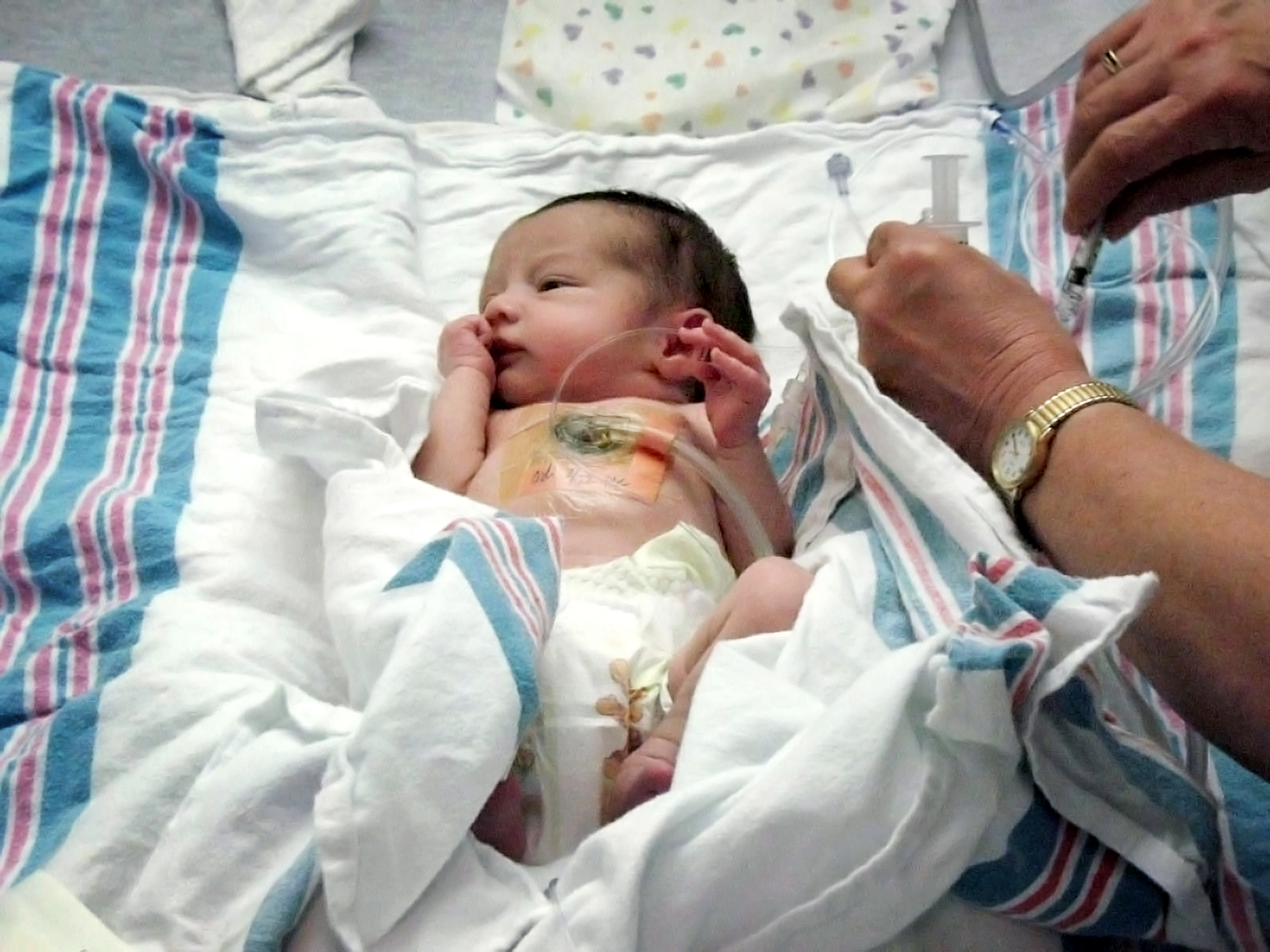
Olivia’s narrative would have been very different without the care she received at UVA Health Children’s. Like most members of her care team, pediatric cardiologist George McDaniel, MD, has been with her from those first few days in the Neonatal Intensive Care Unit (NICU) to the Pediatric Intensive Care Unit (PICU) today.
Had Olivia not been admitted to UVA Health Children’s, Dr. McDaniel said, “At the risk of being overly dramatic, she would have died.”
Marisa Goodwin offered a second opinion: “We owe UVA her life.”
So, when UVA Health Children’s doesn’t have the capacity to admit patients it is uniquely equipped to care for—including those with complex conditions like Olivia— the need to expand becomes imperative.
In 2022 and 2023, the NICU and PICU did not have the capacity to accommodate just over 15% of patients whose families were seeking to have them transferred to UVA Health Children’s for neonatal and pediatric care. In the first quarter of 2024, those numbers ticked up to 24% for the NICU and 36% for the PICU.
Over her 20 years at UVA Health Children’s, Karen Fairchild, MD, has seen the number of sick infants from outside hospitals that the NICU has had to turn away “steadily increasing.” A professor of pediatrics at UVA and interim Neonatology Division Director, Dr. Fairchild cited several reasons for this situation.
First and foremost, she noted the reputation of the NICU—ranked 23rd among children’s hospitals nationally by U.S. News & World Report—to explain why UVA Health Children’s “has been getting a consistently high number of referrals for babies with complicated problems.” Overall, the hospital’s stature (eight other specialties among the top 50 nationwide, No. 1 children’s hospital in Virginia, and No. 6 in the mid-Atlantic) contributes to the increasing demand.
The increasing number of infants surviving with complex healthcare needs requiring a prolonged NICU stay also contributes to the limited number of openings in the unit.
“There’s absolutely an urgency in opening more beds so that we can accommodate the people that need to come here from across the commonwealth as well as the mid- Atlantic region,” said Jonathan Swanson, MD, chief quality officer for children’s services and medical director for the NICU.
Urgency, in reference to capacity, is a word practitioners in the NICU and PICU use frequently.
“When you walk through one of these units, there needs to be an open bed that can be staffed at the drop of a hat and take that patient in,” Dr. McDaniel said, “because barring that, they’re going to have a long transport somewhere else.” He explained that moving kids with critical conditions is inherently risky because even well-equipped transport has limited supplies and staff.
Plans are in the works to increase the number of beds in the PICU by almost 25% and the NICU by nearly 35%. Based on historical data, each PICU bed allows for about 50 admissions a year. Professor and Fellowship Director Michael Spaeder, MD, estimates that expanding from 20 to 25 beds would mean the PICU could care for roughly 250 more children annually.
After the planned expansion in the NICU is complete, Dr. Fairchild said, “My estimate is that we could accommodate an additional 15 babies at any given time,” or more than 100 more patients annually.
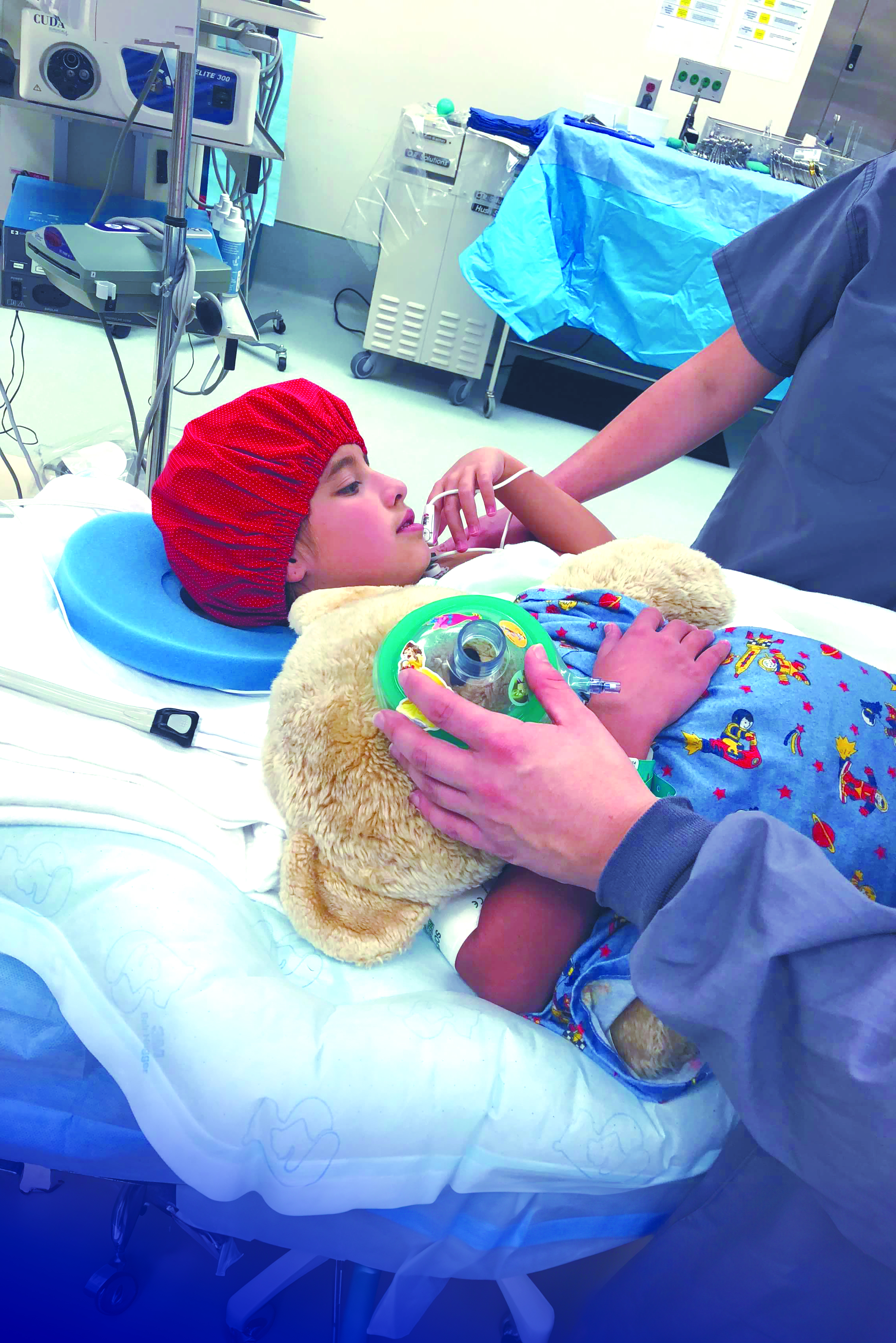
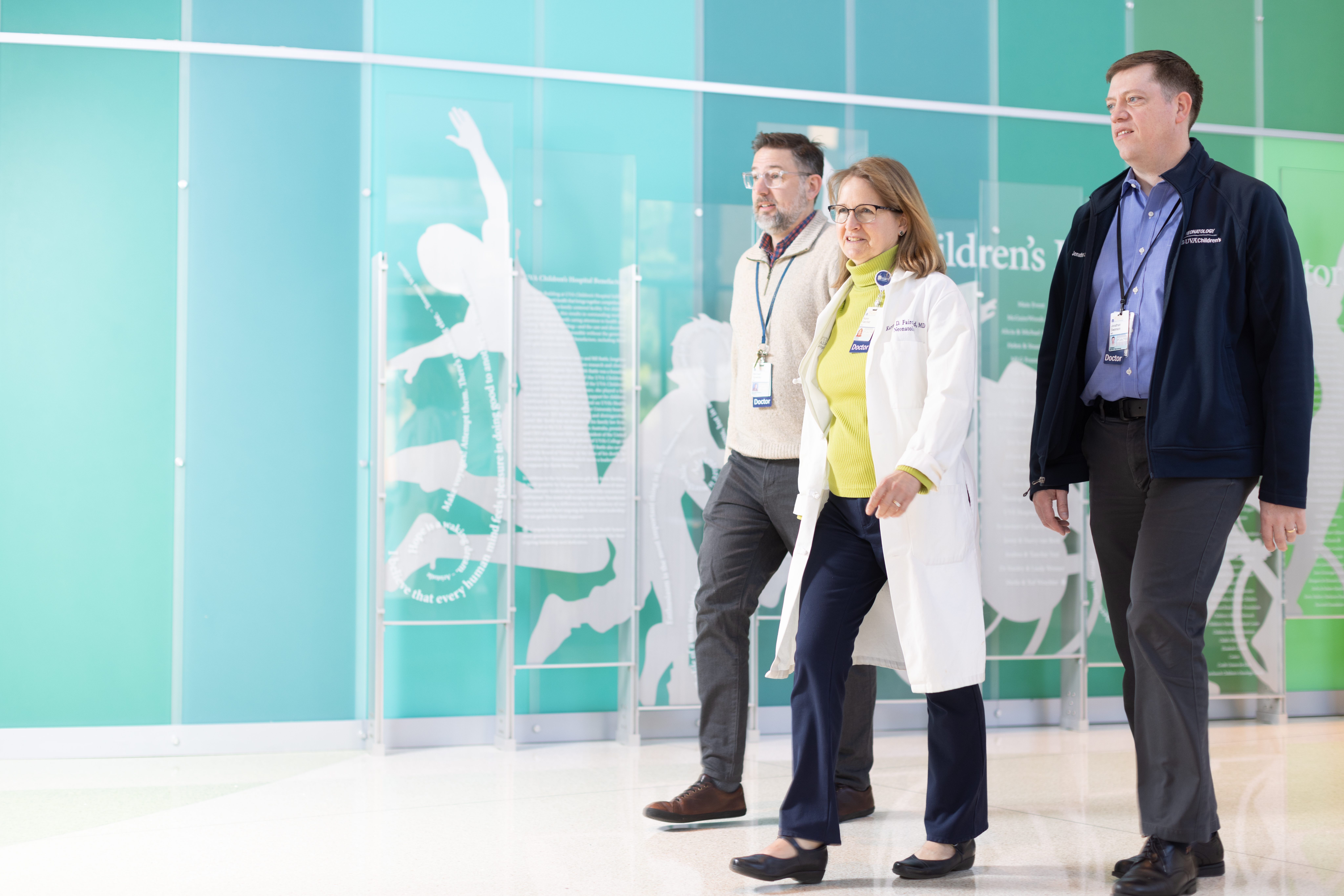
“Our team is outstanding, and we do tend to pull people through tight spots,” said Dr. McDaniel. He believes that’s why Olivia can never recall a time at UVA Health Children’s when she was scared.
“UVA was always such a caring place that it never really entered my mind that this could be my last moment on earth,” she said. “I always just thought that the doctors would pull us through.” At a swim meet in January, Olivia participated in six events.
“After talking through each event and how I should prepare, I felt ready,” she recalled. “I walked to the blocks. In my head, all doubts had disappeared. I truly believed that I could accomplish what was set before me.” Olivia set four personal records.
“Looking back at the event, I see that I set myself up for success. I think that any thought of doubt would have impacted my performance. During the race, I never considered how much I had ahead of myself, but what was already behind me. … I found myself smiling at what I had accomplished, grinning at what, a few months earlier, I had deemed impossible.”
For all her progress and accomplishments, Olivia and her family, including sisters Vanessa, 11, and Monica, 9, recognize the reality inherent in her prognosis.
“She understands that without her pacemaker, she wouldn’t be here,” said Marisa, who is anticipating a fourth surgery for Olivia this winter. “While some plan for college, I just want to make it past our next doctor’s appointment and surgery. We live like tomorrow isn’t promised because, in my world, it truly isn’t.”
Yet Marisa knows that they came to the right place: that the research at UVA “has translated into care for Olivia,” that the goal is to give her a normal quality of life, and “that they can handle the tough cases. So, there was just this innate trust that [they] are going to do what’s right for me and my kid.”
The care teams in the NICU and PICU want to provide that same normal quality of life to more kids and their families. With expansion made possible through philanthropic support, Dr. Spaeder said, “We could potentially reach a day where we never had to say no to a child.”
Every Wednesday, Dr. McDaniel attends a meeting with ICU doctors, cardiologists, surgeons, nurses, and other practitioners to discuss every patient scheduled for surgery. Together, they review data, make sure everyone in the room agrees about every case, and discuss options. Meetings like these happen at other hospitals, but Dr. McDaniel said theirs are different because of the quality and dedication of the staff and the willingness to argue their views, “sometimes vociferously and come up with what turns out to be the best approach for that patient.”
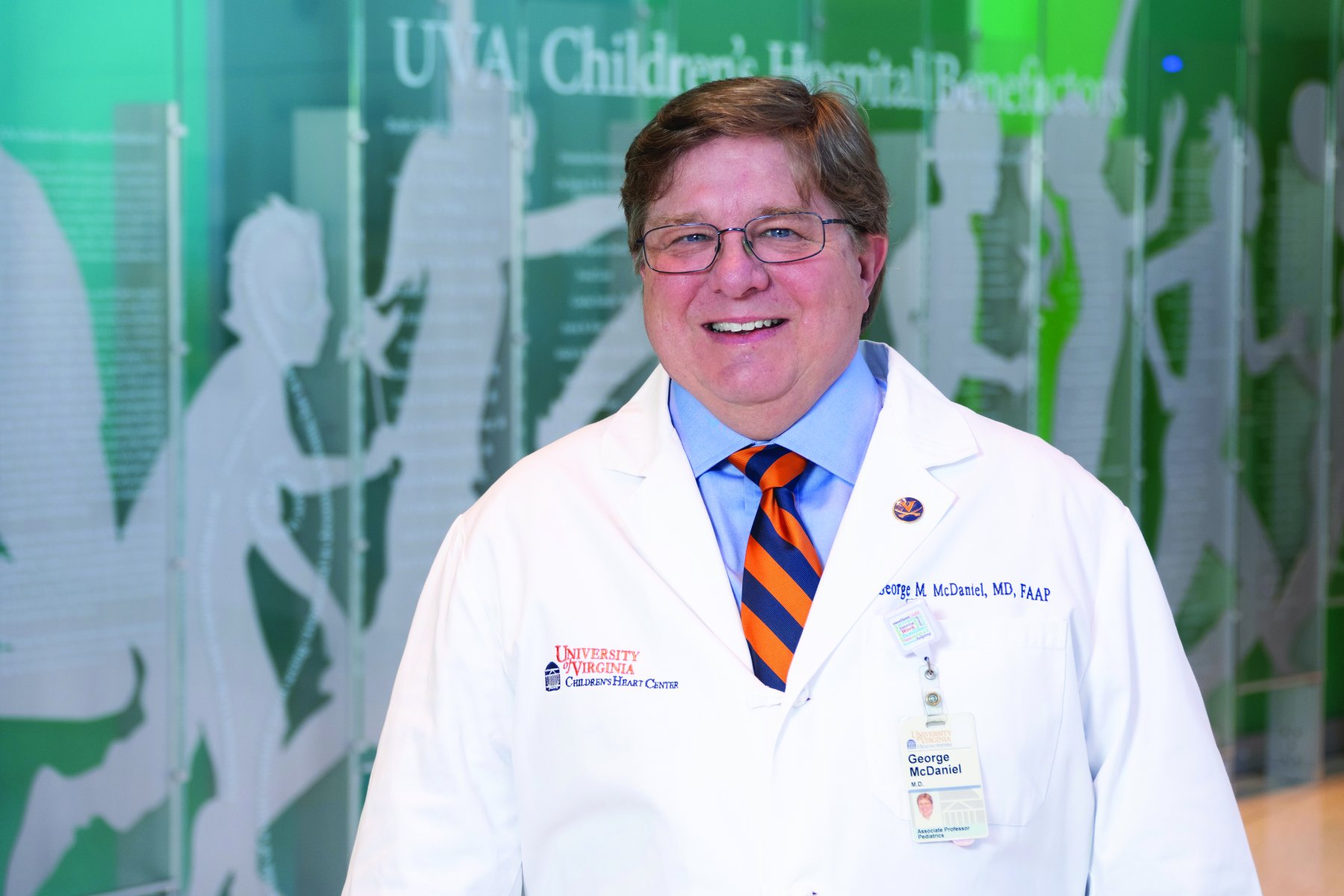
As a result, he said, decisions reflect not just an individual physician but the collective knowledge, skills, and input of perhaps a dozen preeminent specialists.
“I’ve passed up other jobs to stay on this team,” he reflected. “I can’t name a cardiac team anywhere that’s as cohesive as this one.”
For these doctors, nurses, and other members of the care team, being part of such a high-caliber organization is one of the main reasons they came to UVA Health Children’s. The benefit for a patient like Olivia is a continuity of care where many of the same staff who delivered her in the NICU and performed all three surgeries continue to treat her 14 years later. Now, the challenge is how to provide care for more children.
Read UVA Health's Heroes of Innovation to learn more about what UVA Health Children's is doing to improve patient outcomes.
Learn more about UVA Health Children’s NICU/PICU and how you can support this vital program by contacting Marianne Bowes, Associate Vice President for Health Development, at bowes@virginia.edu or 434.995.9018, or call us at 800.297.0102.

